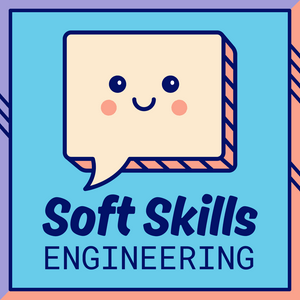Episode 482: I got a promotion, but a tiny raise and an imposter interviewed for my team
In this episode, Dave and Jamison answer these questions:
After a year of trying, I recently got promoted to staff engineer!
It’s great to receive recognition for my work, but i’m not actually very happy, because I only got a 4% raise! I spoke with a former coworker about how much a staff engineer in my role should expect, and he said that he would be insulted by less than . My comp is now slightly below !
In addition to this, times are tough for the business, so it seems unlikely that we’ll get annual bonuses, meaning I likely won’t even get to appreciate the larger target staff bonus! What a bummer!
How should I approach this? A year and a half ago after getting a below inflation raise, I was told I was at the top of my level’s pay band and would need to get promoted if I wanted to go much higher. Now that I’ve gotten promoted, it seems like that wasn’t true! I should be grateful that I still have a job and got promoted and got any increase, but I feel like I’m being short changed! How can I talk to my manager to see about getting more money?
My company does not address complaints. Here are two examples.
On my first day, the lead engineer told me not to participate in the project. He was impossible to work with: He’d hold up PR’s for 3 months because of linting and prettier rules. Eventually, I figured out he was exceptionally insecure and wanted no feedback or anyone to expose his technical weaknesses. I conflicted with him a lot and got shuffled to another department.
My 2nd example comes from a trainee. I helped him out everyday after standup for 30 minutes. How he passed his interview, I don’t know. He didn’t know what a semicolon was after a 4 years bachelor in computer science and 6 months of being a trainee. I complained to a friend at work who had, I didn’t know, interviewed the trainee. My friend was surprised, and so we hopped on a call with the trainee who didn’t recognize my friend. After snooping around on social media, we found the guy who had done the interview, the trainee’s brother. I told HR & my department head. Nothing happened.
Here’s the question: Getting kicked out of a department ruined my confidence. I have a safe, secure job where there’s no pressure. But my firm doesn’t address complaints properly. Time and time again, people will complain about the linting/prettier guy or other issues like the trainee and nothing is done. Should I leave? I work on a greenfield project here. Switching to a (likely) legacy codebase I didn’t build and dealing with higher pay/expectations is very daunting.


